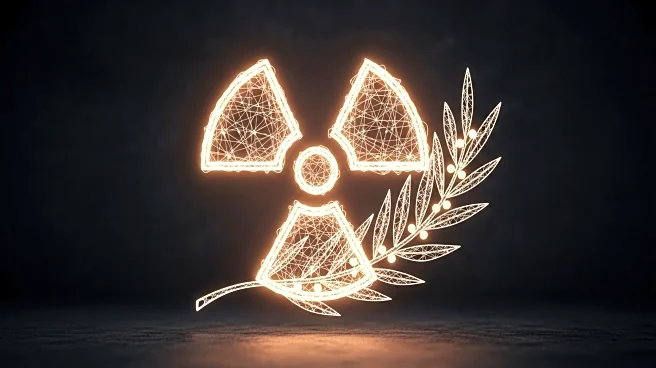What's Happening?
Russia's state-owned nuclear company, Rosatom, has signed a $25 billion agreement with Iran to construct four nuclear power plants. This deal was announced shortly before anticipated United Nations sanctions on Iran's nuclear program. The agreement includes the construction of small nuclear power plants, although the exact number of reactors has not been disclosed. Iran aims to generate 20 GW of electricity from nuclear power by 2040, with plans for at least eight reactors. The deal follows a visit to Moscow by Iran's vice president and head of its nuclear program, Mohammad Eslami.
Why It's Important?
The agreement between Russia and Iran signifies a strengthening of nuclear cooperation in the region, potentially impacting geopolitical dynamics. As Iran seeks to expand its nuclear capacity, this deal could alter power balances and provoke reactions from Western nations, particularly given the impending UN sanctions. The collaboration may also influence global nuclear energy markets and policies, as Iran's nuclear ambitions continue to be a point of contention internationally.
What's Next?
The deal's progression will likely be closely monitored by international stakeholders, especially as UN sanctions are expected to be enforced. European nations have already triggered sanctions due to Iran's alleged non-compliance with the 2015 nuclear agreement. The construction timeline for the new reactors remains unspecified, but ongoing developments at existing sites suggest a focus on expanding Iran's nuclear infrastructure.
Beyond the Headlines
The deal raises questions about the ethical implications of nuclear proliferation and the potential for increased regional tensions. It also highlights the strategic alliances forming between Russia and Iran, which could have long-term impacts on international relations and nuclear policy.











